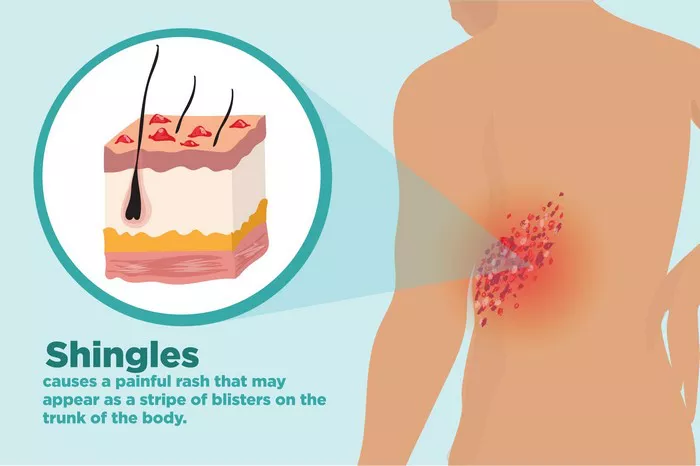Currently, there is no known cure for hidradenitis suppurativa (HS). Despite the lack of a definitive cure, there is ongoing research aimed at developing more effective treatments and potentially finding a cure for this chronic skin condition. The medical community continues to explore various avenues to better understand HS and its underlying causes, which may eventually lead to more effective therapies and possibly a cure in the future.
SEE ALSO: What Foods Cause Hidradenitis Suppurativa?
What is Hidradenitis Suppurativa?
Hidradenitis suppurativa (HS) is a chronic, inflammatory skin condition characterized by painful lumps under the skin, particularly in areas where skin rubs together, such as the armpits, groin, and under the breasts. These lumps can turn into abscesses, which may rupture and cause significant discomfort. The exact cause of HS is not fully understood, but it is believed to involve a combination of genetic, hormonal, and environmental factors. The condition often starts after puberty and can persist for many years, severely impacting the quality of life for those affected.
Treatment Options
While there is no cure for HS, several treatment options are available to help manage the symptoms and reduce the severity of flare-ups.
Topical Medications: These are creams and ointments applied directly to the skin to reduce inflammation and prevent infections. Common topical treatments include antibiotics like clindamycin, which can help reduce the number of lesions and prevent new ones from forming. Topical retinoids may also be used to promote skin turnover and reduce blockages in hair follicles.
Oral Medications: For more severe cases of HS, oral medications may be prescribed. These include antibiotics, which help control bacterial infections, and anti-inflammatory drugs like corticosteroids, which can reduce inflammation. In some cases, immune-modulating drugs such as biologics are used to target specific pathways involved in the inflammatory process of HS. These drugs, like adalimumab, have been shown to be effective in reducing the severity of the disease in some patients.
Surgical Procedures: In severe cases of HS, surgical intervention may be necessary. Surgical options include drainage of abscesses, excision of affected tissue, and laser therapy to remove hair follicles and reduce inflammation. These procedures are typically reserved for individuals who do not respond to other treatments or have particularly severe or persistent lesions.
Lifestyle Modifications: Managing HS often requires lifestyle changes to reduce triggers and improve overall health. This includes maintaining a healthy weight, as obesity can exacerbate symptoms, and practicing good hygiene to reduce the risk of infections. Avoiding tight clothing and managing stress are also important, as these factors can contribute to flare-ups.
Treatments
Active Research Efforts
Research into HS is ongoing, with the goal of developing new and more effective treatments. Some of the promising areas of study include:
Novel Medications: Scientists are exploring new medications that target specific pathways involved in the development of HS. These include inhibitors of inflammatory cytokines and other molecules that play a role in the immune response associated with HS.
Biological Therapies: Biologic drugs, which are designed to modify the immune system’s response, are showing promise in treating HS. These therapies, such as TNF inhibitors, work by blocking specific proteins that contribute to inflammation in HS. Ongoing research is aimed at identifying more biologics that could offer relief to a broader range of patients.
Gene Therapy: While still in the early stages of research, gene therapy holds potential as a future treatment for HS. This approach involves modifying or repairing genes associated with the condition, potentially offering a long-term solution to those affected. Studies are ongoing to better understand the genetic factors involved in HS and how they can be targeted through gene therapy.
Importance of Medical Consultation
Seeking Professional Advice
If you have HS or suspect you might have it, it’s crucial to consult with a qualified dermatologist or healthcare professional. Early diagnosis and treatment can help manage the symptoms more effectively and prevent complications.
Personalized Care
HS varies greatly from person to person, so treatment plans should be tailored to the individual’s specific needs. A healthcare provider can assess the severity of the condition and recommend the most appropriate treatments, which may include a combination of topical treatments, oral medications, and possibly surgery.
Conclusion
In summary, while there is currently no cure for hidradenitis suppurativa, there are various treatments available to help manage the condition and improve the quality of life for those affected. Ongoing research offers hope for more effective treatments in the future, and individuals living with HS are encouraged to seek support and consult with healthcare professionals to develop a personalized care plan. Though HS presents significant challenges, advances in research and treatment are paving the way for better management and, potentially, a future cure.
Realted Topics:



























